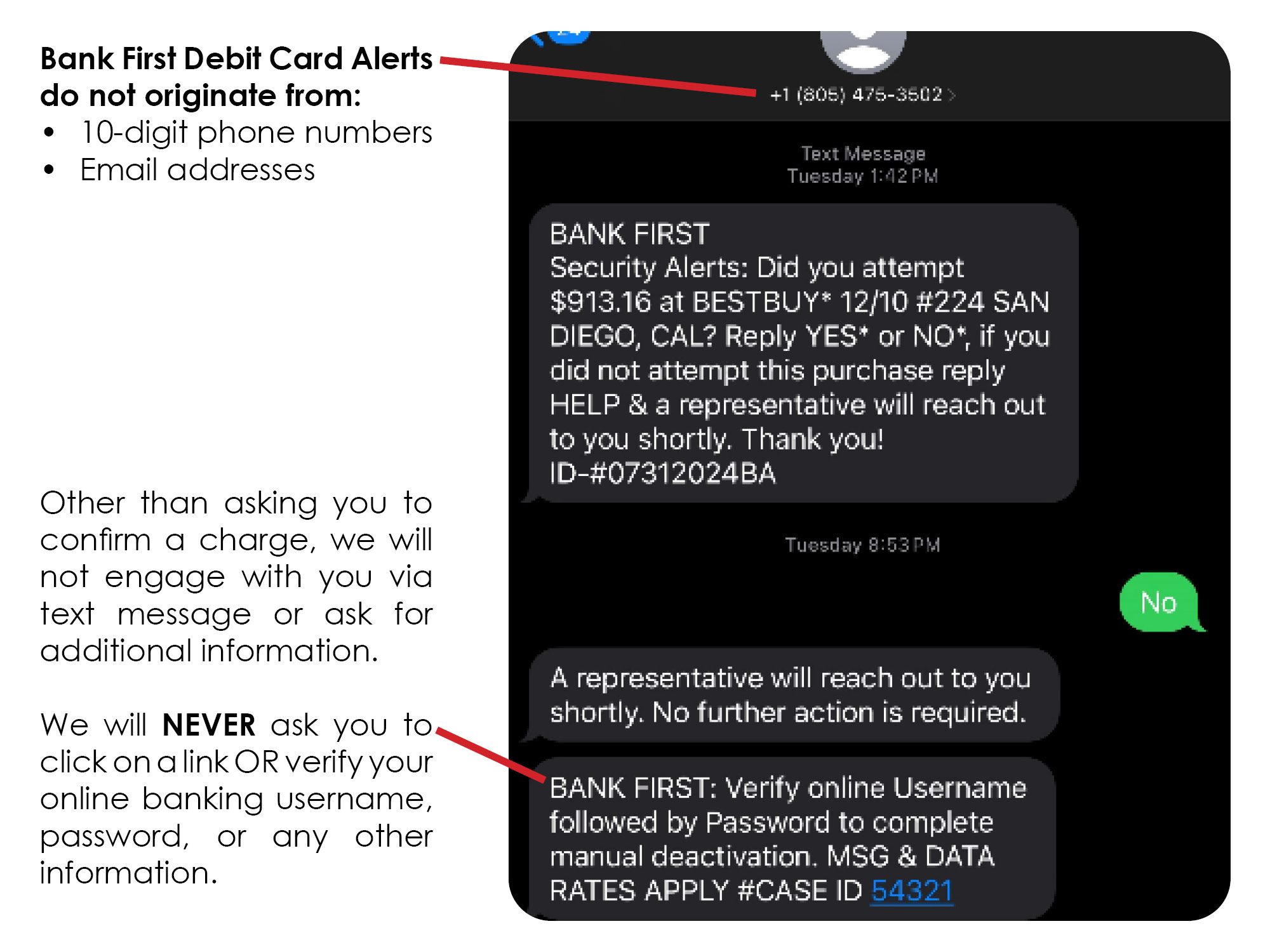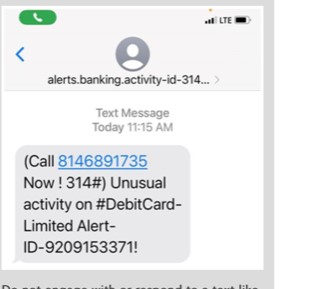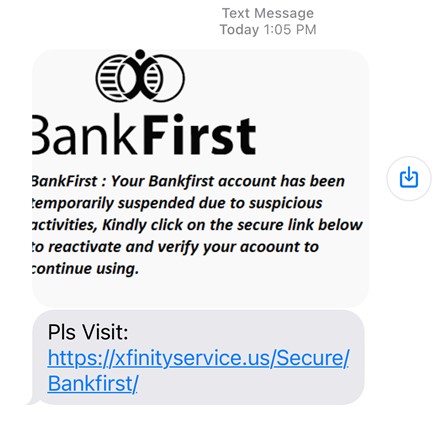Posted in Security
Updated: December 12, 2024
Don’t Let Text Scammers Steal Your Holiday Cheer
The holiday shopping season is a time for joy and generosity - but it’s also a prime opportunity for scammers to strike. As more people rely on their phones for shopping, banking, and staying connected, we’re seeing a rise in imposter text scams. These fraudulent messages often target bank account and debit card activity, using fear and urgency to trick you into giving up funds or your online banking credentials.
Stay one step ahead of scammers by learning how to recognize and avoid these common holiday-season threats.
What Are Imposter Text Scams?
Imposter scams occur when a fraudster pretends to be someone you know or a company you trust. If you have a mobile phone, you’re no stranger to these scams! You’ve likely received messages claiming to be from "Amazon," "PayPal," the "IRS," or even "Bank First." Locally, we’ve seen an increase in these scams targeting bank account and debit card activity.
These texts may warn of suspicious account activity, request account verification, or offer fake deals to grab your attention. The end goal is always the same: to steal your personal information or money. Fraudsters are experts at making their messages look legitimate, so it’s essential to stay vigilant.
Real-Life Examples of Imposter Scams
This is the most recent example of a debit card fraud alert sent by a scammer. We've noted a few features to help you identify a scam:

Other examples:


For your own account and information security, utilize these simple, but effective tips:
-
DO NOT engage or respond to text messages, emails, or phone calls that ask you to confirm or provide personal information. This includes debit/credit card and bank account numbers, Social Security numbers, passwords, etc.
-
DO NOT click on links or call the phone number listed within a text/email from any company. Always go directly to the source of information - login to your account from a saved source, visit the company website directly, call the phone number on your statement or back of your card, etc.
-
DO NOT give remote access to your computer to people you do not know.
-
Always contact your local Bank First office directly if you receive a message with an unusual request or message regarding your bank account, debit card, or other bank-related items. Remember, Bank First will never contact you to ask for your account information.
Please contact your local Bank First office right away if you have provided bank account information, passwords to your online banking accounts, or paid funds as a result of any fraud attempts or scams.

